

It was one of the more dramatic moments in the daily struggle for clean water in the sprawling capital of North Kivu province, located on the rugged volcanic shores of Lake Kivu, a 90-kilometer long, 50-kilometer wide body of water, and one of Africa’s Great Lakes.
Goma is a major hub for the world’s second largest United Nations peacekeeping operation and for hundreds of humanitarian aid organizations that spend millions of dollars monthly on local interventions, and yet the city has virtually no running water. Many of the upscale hotels dotted along the city’s scenic waterfront have water delivered by pumps or by trucks. The majority of the city’s two million inhabitants get their water for drinking, washing, and cooking either directly from the lake or from water sellers who charge up to ten times more than Regideso, the public utility responsible for supplying water in Congo’s urban areas.
Every day, often in the pre-dawn darkness, Goma’s women and children set out with their containers to collect water, a chore that can take hours or sometimes even days. Charities also distribute water in tanker trucks, but there is never enough, and water taken directly from the lake or from other contaminated sources causes frequent outbreaks of cholera and other diseases. Deadly reservoirs of methane and carbon dioxide gases also lurk beneath Lake Kivu’s surface, putting people collecting water at risk of asphyxiation and death. And as Congo contends with both coronavirus and an Ebola epidemic, the lack of access to water, sanitation and hygiene is putting millions of people at greater risk of contracting COVID-19.
When the government declared a state of emergency and the country went into lockdown in March, state officials promised free water and electricity, but with poor infrastructure and few Congolese connected to such services, the gesture has meant little to most of the population. The scarcity of clean water in Goma has led to huge crowds and stampedes at water distrubution points and has prompted a protest campaign by LUCHA.
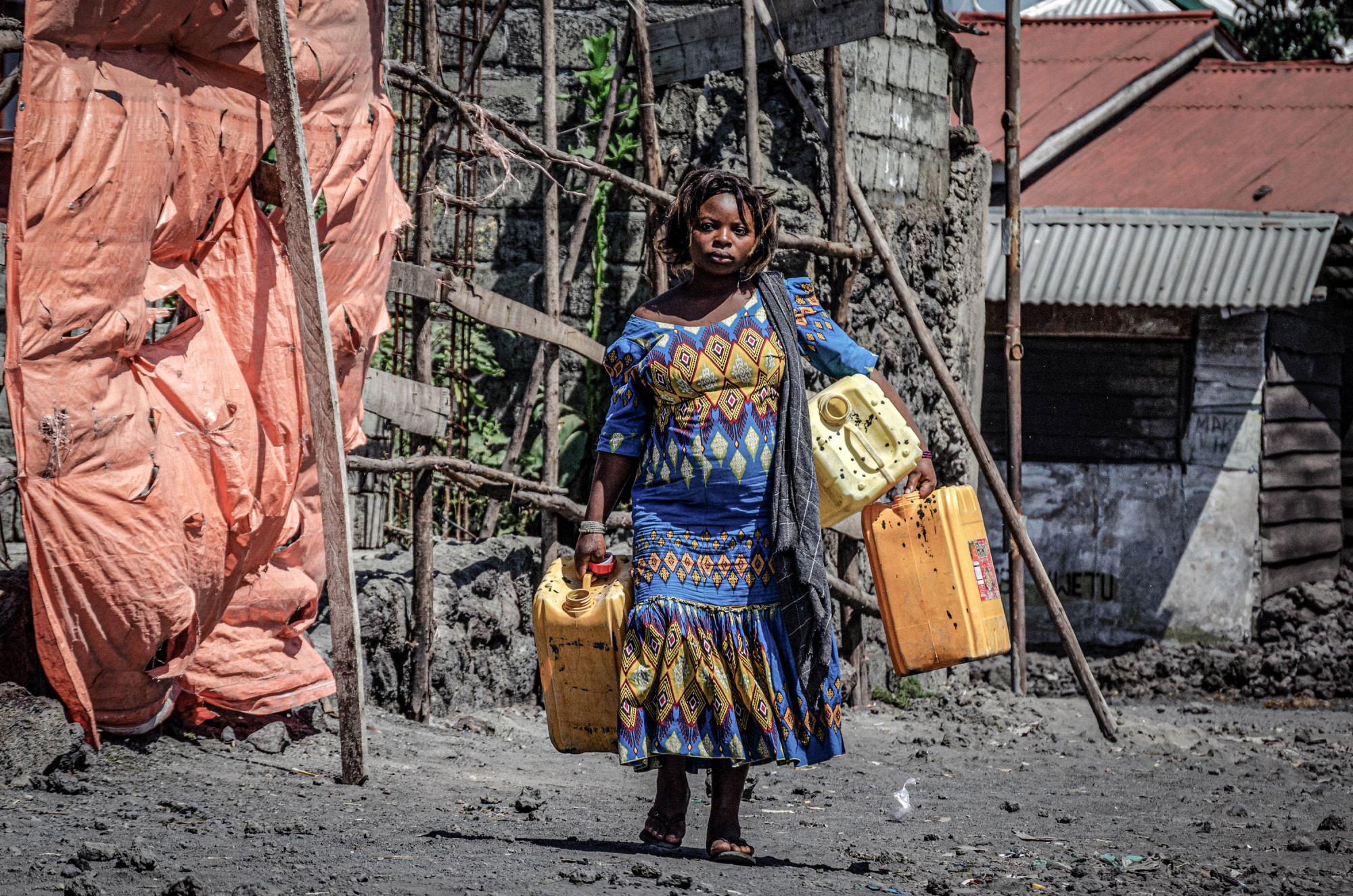
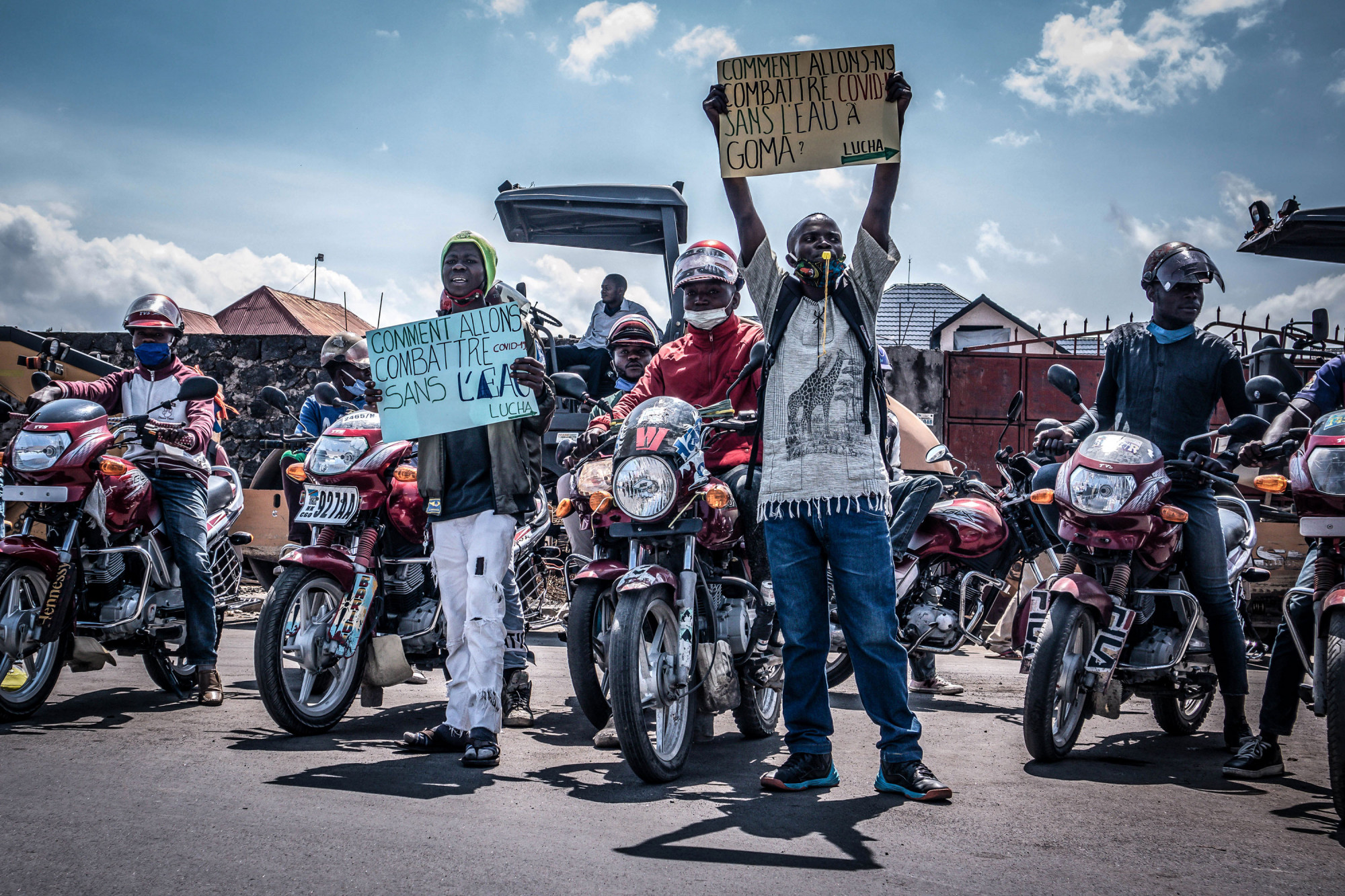
“Every day they are telling us that to fight coronavirus we must always wash our hands but they are not giving us any water,” said LUCHA activist Nsaraka Bin Nkartumwa outside the Regideso office where dozens of whistle-blowing protestors had gathered to demand better services.
Congo passed a law in 2015 making access to water and sanitation a fundamental right guaranteed by the Constitution. It also stipulated that such services “are not free” and shifted the responsibility for maintaining infrastructure to the provincial level.
Goma’s water woes are a microcosm for the rest of the country. Congo is Africa’s most water-rich country, holding more than half of the continent’s fresh water reserves, but 75% of the country’s 80 million people have no access to safe drinking water and sanitation. This, coupled with poor hygiene, is among the top five risk factors associated with death and disability in the country. The long hours spent waiting for and transporting water also limits the time adults have to earn income or for children to attend school.
Congolese women and girls are exposed to physical, sexual, moral and psychological violence during water collection, according to UNICEF.
“We wake up at 9pm, or midnight, or 2am, we don’t sleep,” said Maman Gentille, who was wrapped in a thick blanket for warmth while waiting in the dark at a water point. “There are people who can wait two days without getting any water. And for us women, it’s perilous because we can be raped by bandits and then be abandoned by our husbands.”
Goma’s water system was already dilapidated and leaking before it was further damaged in 2002 when the nearby Nyiragongo volcano erupted and a river of lava oozed through the city, burying entire neighborhoods. Various water projects have been launched since then, but the government’s poor infrastructure and lack of funds means that foreign donors provide nearly 99% of water sector financing in Congo.
“The solution would be for Regideso to supply water into people’s homes for those who can afford it” said Aziza Bintu, who operates one of the city’s communal water points. “And those who can’t can always still come to the water points.”
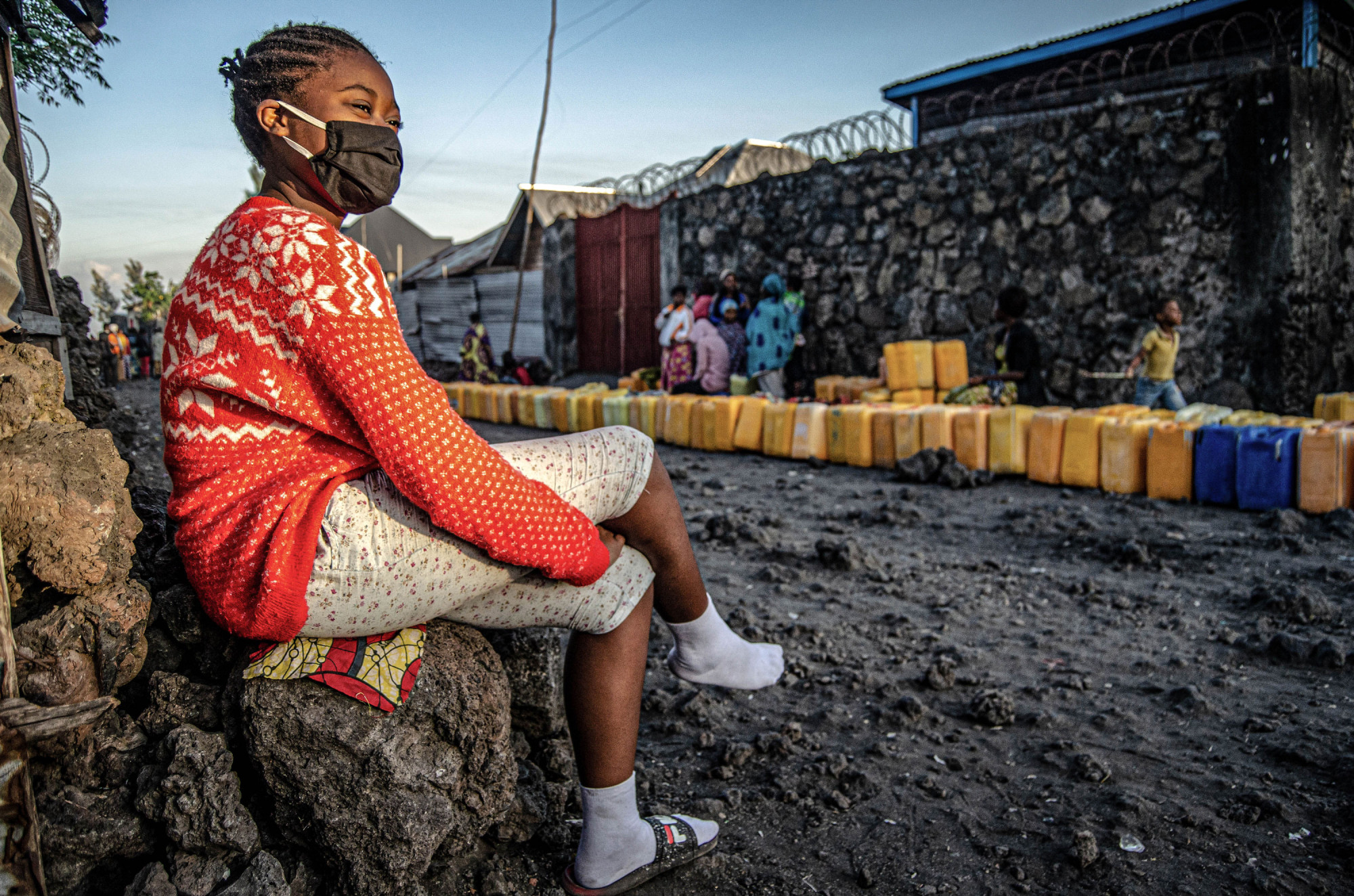
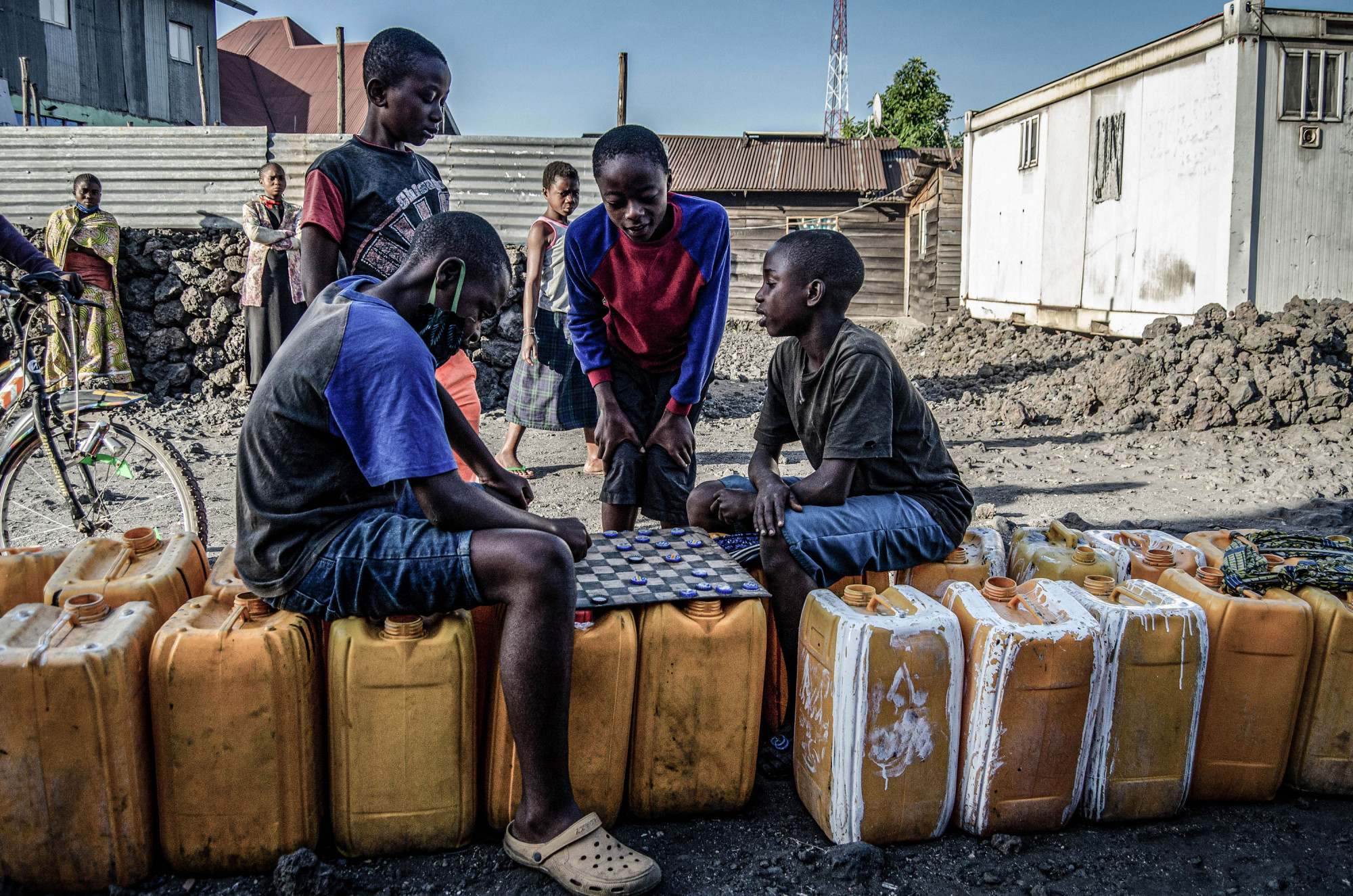
With little capacity and poor governance, the country relies on outside support, such as the World Bank’s Urban Water Supply Project, a $190-million initiative launched in 2008 to restructure and improve the performance of Regideso. Mercy Corps also launched a seven-year UK government-funded program to provide improved access to water, sanitation, and hygiene for up to a million people in Goma and Bukavu, a city located at the southern end of Lake Kivu. But LUCHA activisits argue these initiatives have achieved little in practical terms despite significant funding. Many Congolese are suspicious of foreign aid agencies and their local partners, viewing them as corrupt profiteers, a view that will only be bolstered by a damning report last week exposing massive corruption and abuse in Congo’s humanitarian aid sector. Mercy Corps said it lost $639,000 to fraud revealed in the report.
While aid money goes missing, Goma’s residents continue to struggle for the most basic necessities. “They say that water is life, but we don’t have access to it” said Maman Gentille, still waiting her turn in the darkness. “Yes, it is free but we don’t see how that matters when we don’t get any.”
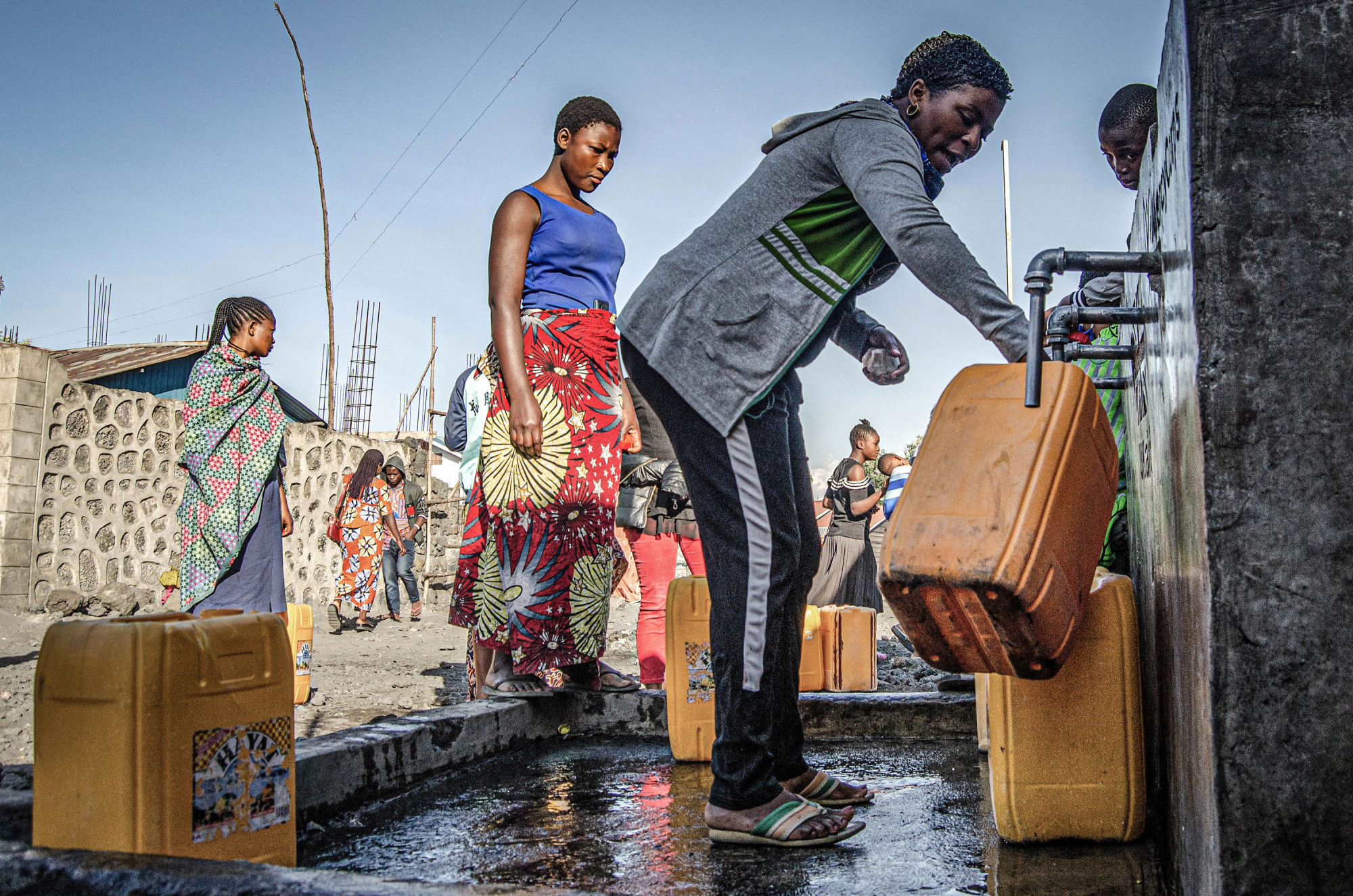
Video and text by Moses Sawasawa and Charly Kasereka. Photos by Moses Sawasawa, Arlette Bashizi and Guerchom Ndebo.